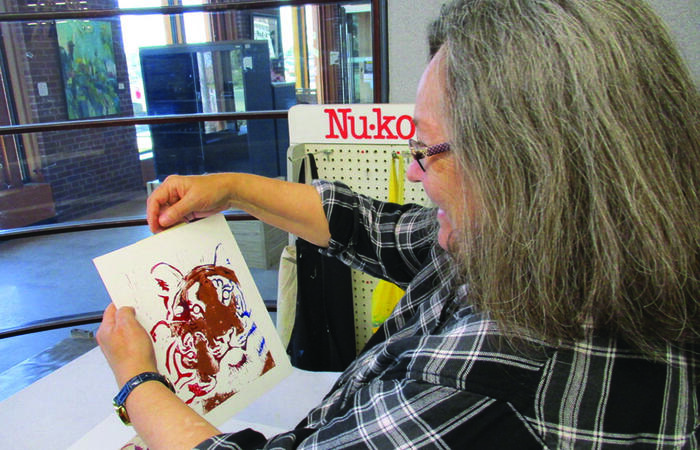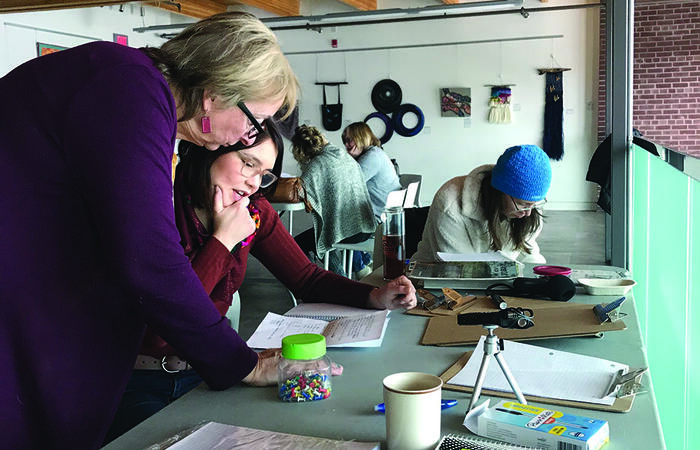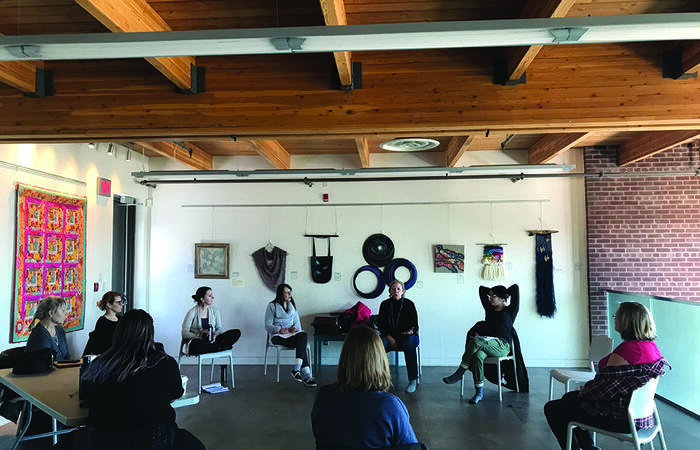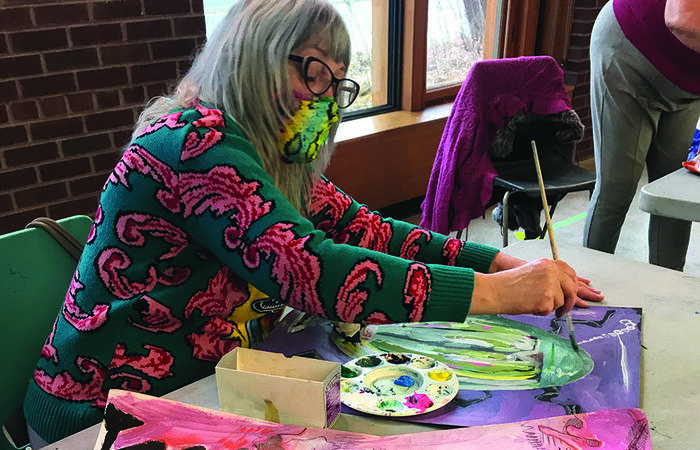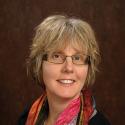While food and drink are the sustenance for our body, art is what sustains the soul and the heart. Without something to give form to our thoughts and feelings, we are empty shells that crave validation and acceptance.
Mindful Makers Collective offers free professional development for artists and makers 18+ who have lived experiences with mental health and addictions. It is not an art therapy program, but a means for artists to break out of their isolation, and communicate with other artists and gain support.
The three-year pilot program is headed by Executive Artistic Director Carol Kajorinne Krievin and run with the assistance of Workman Arts Scaling Project (funded by the Ontario Trillium Foundation) and local corporate partners.
Sarah Nelson, a member of the Collective, describes the program as human centred. No one is spoken down to because of their addiction or mental health issues and everyone is treated with respect. The students are consulted on how to improve the programs and what should be offered. Inclusion is their number one priority.
“I think of myself as an emerging artist,” Nelson explains. “The courses gave me the opportunity to see the gifts in myself – all because I had supportive people around me.”
During a Breath Body + Voice workshop with facilitator, ElizaBeth Hill, Sarah gained the confidence to speak. “It pulled the trauma out of my voice,” she says. “The First Nations people were outlawed from singing their songs. This took more than just our songs away from us,” she states. “But now, the only way we can rise above what we’ve lost is to wake everyone up and show them we can reclaim it, leading the way for all nations of the world to reclaim who they are.”
Poetry and Improv sessions stirred something else inside Nelson, rekindling her passion to write and giving her the opportunity to create new friendships.
“I learned how to release the things I was carrying and move forward,” she says with a smile.
Workshops offered during the fall, winter, and spring, have included visual and performing arts - offered both in person, and, more recently, online. Art skills, including how to sell, manage workshops, and present their work, were also taught.
The development in Christine Cherniski’s life is an example of the program’s effectiveness.
“I’m the kind of person who is on the outside of a group,” Cherniski admits. “The kind that many people don’t know how to take, so they don’t.”
During a program hosted at Victoriaville, Cherniski met Kajorinne Krievin and felt so welcome and included that she knew she could blossom. “Carol is such a great listener and caring person you can’t help but feel included.”
Now Cherniski is a teacher in the program. Her first session in sharing her talents in paper quilling went over so well that students were hooked the moment they placed paper to paper.
“Creativity is a cathartic process,” Cherniski admits. “It facilitates your growth as a person and an artist.”
She also notes how everyone is there to make sure people feel validated each step of the way. “I love that I don’t have to be my best when I go to the workshops,” says Cherniski. “Not all of our days are great days. But when I go there, I feel welcome. There’s space for different levels of participation and interaction.”
Trish McLellan graduated with her fine arts degree from Lakehead University many years ago but due to major depression and anxiety she could not continue with her visual art. “Depression stole the most important things from me,” McLellan says. “So much that I stopped seeing colour and didn’t do art for decades.
”When McLellan went to an open studio session, where artists create in a shared working environment, she felt invigorated and accepted. After taking part in several workshops, she is back to working in her studio at home and teaching. Life is on the mend.
With the pandemic into its second year, isolation has made it more difficult for people with mental illness. The Collective recognizes this and has kept the sessions going online – and participants are grateful for this. Nevertheless, not everyone has access to, or interest in, being online. They’re working towards addressing this new gap.
Now that the three-year pilot program is drawing to an end, Kajorinne Krievin hopes they can secure the funds to continue, as well as adapt the programming to be more accessible in this new online reality. “It would be a shame to lose this program after we’ve seen so many great things,” she says. Cherniski adds,
“I hope we can hang onto this – even after Covid.”
For more information on the Mindful Makers Collective offers, go to www.mindfulmakers.org.

